HOME
Morpheus: You've been living in a dream world, Neo.

Plato's Allegory of the Cave -The Matrix and The Truman Show

BOOK SEVEN
The Cave And The Matrix Towers
In Book VII (SEVEN) of The Republic, Plato tells a story entitled "The Allegory Of The Cave." He begins the story by describing a dark underground cave where a group of people are sitting in one long row with their backs to the cave's entrance.
Chained to their chairs from an early age, all the humans can see is the distant cave wall in from of them. Their view of reality is solely based upon this limited view of the cave which but is a poor copy of the real world.
In addition to the chained people, there are other people in the cave. Plato refers to them as the puppet-handlers and they are the ones holding those in the cave captive.
(It is important to realize that the prisoners do not realize this in fact, the prisoners do not even realize that they are being held captive since this existence is all they have ever known.)
Walking behind the prisoners, the puppet-handlers hold up various objects found in the real world. Due to a fire that is burning the mouth of the cave, the prisoners are able to see the objects and each other only as distorted, flickering shadows on the cavern wall in front of them.
Unfortunately, the prisoners can not see the actual objects or the puppet-makers because they are unable to turn their heads. From childhood, "their legs and necks [have been] in bonds so that they are fixed, seeing only [what is] in front of them. As Plato goes on to later explain, "the truth would be literally nothing but the shadows of the images."

The movie, "The Matrix," parallels Plato's Allegory Of The Cave in a number of ways. Similar to the prisoners of the cave, the humans trapped in the matrix (the cave) only see what the machines (the modern day puppet-handlers) want them to see.
They are tricked into believing that what they hear in the cave and see before them is the true reality that exists. Furthermore, they accept what their senses are telling them and they believe that what they are experiencing is all that really exists nothing more.
However, Neo is forced to face a painful truth when he is removed from the pod that has kept him trapped in the virtual reality of the matrix.

Neo discovers that what he has been presented with his entire life is only reflections, or merely shadows of the truth. This theme is carried throughout the movie as we see many objects (as well as Neo himself) reflected in other objects.
The Puppet-Handlers
The puppet-handlers, as Plato calls them, represent the influential, powerful members of society. In "The Matrix," the puppet-handlers are the machines spawned from a singular consciousness called AI (Artificial Intelligence.) Basically, the puppet-handlers in both cases use artificial surroundings as a way to control and manipulate the information that the prisoners receive.

And while the prisoners are being fooled and influenced by the false reality presented to them, so too are the puppet-handlers, to some extent, because they are also living inside the artificial world they have created as well.
Note how towards the end of the "The Matrix," Agent Smith, a computer simulation, begins to express human emotions such as anger and hatred.
Since he has to live in the false reality of the matrix, the agent has begun to adapt to his environment, the very prison-like surroundings he helped create for his captives. In fact, he is becoming more and more like the enslaved humans that he is despises.
We are enslaved to the five senses, we believe that what we experience by the five senses to be real, our souls are enslaved by the senses, we live in the lower world of the cave, but we must go UPWARD, we must climb UP towards the light, this is profound meditation. We are living in the lower three chakras, we must ascend to the higher chakras in order to reach the light. All else is just shadows, we see only the shadow of reality if we stay enslaved by the lower world.
The Shadows
The shadows in both stories play a crucial role in shaping the prisoners' view the world. In fact, it is the shadows (which are only half-truths) that serve as the basis for the prisoners' false or distorted sense of reality.
The repetitive use of mirrors and reflected images in the move "The Matrix" serve to remind us of this fact.

In "The Matrix," the machines use "shadows" (series of code which together make up the matrix world) to occupy the humans and keep them under their control. The prisoners of the cave and the matrix are shown only shadows of the real objects, in part, because the puppet-handlers believe that the truth would be too painful for the prisoners to accept.
Besides, it is easier to pacify the prisoners and keep them happy (and under control) by supplying them with only half-truths since most will be uncooperative and try to escape if they learn that are in captivity.
The Freed Man
In "Allegory of The Cave," Plato goes on to present the hypothesis that one of the prisoners (who he often referred to as the philosopher or intellectual) would eventually be released or escape from his chains and flee the cave.

After turning around in his chair, this philosopher/intellectual would then be able to see the real objects that are casted as only shadows on the cave wall as well as the puppet-handlers who are holding these objects.
In the movie, "The Matrix" this scene directly parallels with Neo's scene in the matrix pod. Looking around in shock, Neo sees, for the first time, his true surroundings. He is actually living in a human factory.

At first, Plato says that the Freed Prisoner would be confused at what he saw. "He [would] suffer sharp pains; the glare [would] distress him, and he [would] be unable to see the realities of which in his former state he had seen the shadows he'd be at a loss and believe that what was seen before is truer than what is now shown."
As for Neo, when he is finally confronted with the truth surrounding the matrix, Neo is in a state of confusion and denial. In fact, the realization of the true is so overwhelming that he throws up and passes out.
As pointed out in "The Allegory Of The Cave," the Freed Man might even feel that what he was seeing now was the illusion and the shadows on the wall were actually more real. Like Cypher tells Trinity, "I think the matrix can be more real than this world."
Plato also goes on to suggest that the freed prisoner would not only be shock over the realization of his true existence, but that he would suffer physical pain: "And if he is compelled to look straight at the light, will he not have a pain in his eyes which will make him turn away to take in the objects of vision which he is able to see without pain, and which he will conceive to be in reality clearer than the things which are now being shown to him?"
Like Neo, who says "I can't go back, can I?" the freed prisoner's first reaction would be to turn around (return to the false reality) because it is less painful and more familiar to him. Very similar to lots wife looking back and turning into a pillar of salt. (reverting back to the cave of ignorance).
Interestingly enough, Plato even ponders with the ideas that the bonds holding the prisoners to their chairs may actually be mental rather than physical in nature; in another words, if the prisoners really wanted to escape from the cave, they could do so by simply willing themselves to get up and walk out. (Note that in "The Matrix" that Morpheus is able to break free of his handcuffs with the use of his mental powers as well as physical strength.)

With these thoughts in mind, it is important to realize, at least accordind to Plato, that the Freed Man must have started to question what he saw in front of him and wondered about the origin of the shadows and if there was anything else beyond the cave wall that he saw before him. He must have sensed something was wrong and he sought out the truth. In fact, this is the only way that a prisoner is able to escape it has to be the result of him making a choice and wanting to learn the truth.

This theme is also found in the movie, "The Matrix." Neo is portrayed very must like the freed prisoner. As Morpheus tells Neo, "You're here because you know something. What you know you can't explain. But you feel it. You've felt it your entire life. That there's something wrong with the world. You don't know what it is but it's there, like a splinter in your mind driving you mad. It is this feeling that has brought you to me."
Freedom From The Cave
In addition, Plato gives the reader an account of what it would happen if the freed prisoner were to forced out of the cave and into the reality of the real world. As he explains:
"When he approaches the light his eyes will be dazzled, and he will not be able to see anything at all of what are now called realities. He will require to grow accustomed to the sight of the upper world.
And first he will see the shadows best, next the reflections of men and other objects in the water, and then the objects themselves; then he will gaze upon the light of the moon and the stars and the spangled heaven Last of he will be able to see the sun."

As Plato pointed out, the sunlight would hurt the Freed Man's eyes, and leave him temporarily blind. It would take a lot of time and patience before he actually see, let alone come to fully comprehend, his new surroundings. Ironically, this is exactly what happened to Neo after he is removed from the matrix pod. When Neo questions why his eyes are sore, Morpheus tells him that it is because "You've never used them [your eyes] before."

At some point, Plato suggests that the Freed Man would most likely want to share his discovery of the real world with those still trapped in the cave and want to free them. However, he would have no desire to go back to his life in the cave; in fact, "he would rather suffer anything than entertain these false notions and live in this miserable manner."
Eventually though, his desire to help his fellow prisoners would win out. (Note that this accurately describes the members of the Neb crew with the exception of Cypher.)

Upon returning to the cave, the freed prisoner would once again sit next beside the captives and tell them about the world that exists outside the cave. Of course, it would be very difficult for the Freed Man to inadequately explain the real world, and in many ways, he would not be understood or believed no matter what he said. As Morpheus tells Neo while the two of them sit down and chat, "Unfortunately, no one can be told what the matrix is. You have to see it for yourself."
Dismissing his claims and laughing at him, the prisoners would most likely come to the conclusion that the Freed Man is insane, especially since they would realize that the Freed Man was having trouble re-adjusting to the dimly lit cave. In some respects, the Free Man, who has now become accustomed to the light, would now be blinded by the darkness.
In fact, the prisoners would even demonstrate hostility toward the free man if he persisted in his beliefs or tried to convince them to leave. They would not want to face the possibility that their idea of reality was flawed. Isn't this exactly what a religious person would do, when you try and point out that they are actually in a cult of darkness (in a cave) of ignorance.
In addition, prisoners would fear that they would become blind (unable to see the only reality they have ever known) if they left. As Plato explains, "Men would say of him that up he went and down he came without his eyes; and that it was better not even to think of ascending; and if any one tried to loose another and lead him up to the light, let them only catch the offender, and they would put him to death."

Here, Plato points out that prisoners would rather commit murder than allow anyone to take them out of the cave. They would fight to stay in the cave because it is the only world they have ever known and it is where they feel safe. In "The Matrix," Cypher kills several people in his quest to go back to the matrix (the cave).

Morpheus tells Neo the same thing in regard to the humans still plugged or trapped in the world of the matrix. "You have to understand, most of these people are not ready to be unplugged [forced out of the matrix the cave]. And many of them are so inert, so hopelessly dependent on the system that they will fight to protect it."
Society's Role In Our Lives
In conclusion, Plato's story of the cave brings up many philosophical points and most importantly, addresses the issue of society's role in our lives. To some degree, we are all influenced by the thoughts and actions of others; however, at the same time, we have the ability to question, draw our own conclusions, and ultimately make our own choices.

As Trinity tells Neo, "The Matrix can not tell you who you are." By being courageous enough to turn around and take the red pill, we, just like Neo and the Freed Man, are making the first step towards personal independence.
This page was reposted from the website below, and has TRUTH written all over it.
http://www.geocities.com/larkspur10/neo/matrixplatoscave.html
(http://thereisnospoon.moviefever.com
“Philosophy involves seeing the absolute oddity of what is familiar and trying to formulate really probing questions about it.” Iris Murdoch
PLATOS CAVE BOOK SEVEN
did you recognize the synchronicity, it is book SEVEN.
And the allegory is about stepping out of the ignorance of darkness into the the truth and knowledge of the Light. And in order to do that, you must read, learn and understand.
And you must enter within yourself in meditation, and raise the serpent kundalini through the SEVEN seals.
Either this is centuries old synchronicity, or else it was the SEVENTH because of the truth about the number SEVEN, and was placed as the seventh book intentionally.

Story of the cave
They are in it from childhood with their legs and necks in bonds so that they are fixed, seeing only in front of them, unable because of the bond to turn their heads all the way around. Their light is from a fire burning far above and behind them. Between the fire and the prisoners there is a road above, along which we see a wall. built like the partitions puppet-handlers set in front of the human beings and over which they show the puppets".
"I see," he said.
"Then also see along this wall human beings carrying all sorts of artifacts, which project above the wall, and statues of men and other animals wrought from stone, wood, and every kind of material; as is to be expected, some of the carriers utter sound while others are silent."
"It's a strange image," he said, "and strange prisoners you're telling of."
"They're like us," I said. "For in the first place, do you suppose such men would have seen anything of themselves and one another other than the shadows cast by the fire on the side of the cave facing them?"
"How could they," he said, "if they had been compelled to keep their heads motionless throughout life?"
"And what about the things that are carried by? Isn't it the same with them?"
"Of course."
"If they were able to discuss things with one another don't you believe they would hold that they are naming these things going by before them that they see?"
"Necessarily."
"And what if the prison also had an echo from the side facing them? Whenever one of the men passing by happens to utter a sound, do you suppose they would believe that anything other than the passing shadow was uttering the sound?"
"No, by Zeus," he said. "I don't."
"Then most certainly," I said, "such men would hold that the truth is nothing other than the shadows of artificial things."
"Most necessarily," he said.
"Now consider," I said, "what their release and healing from bonds and folly would be like if something of this sort were by nature to happen to them. Take a man who is released and suddenly compelled to stand up, to turn his neck around, to walk and look up toward the light; and who, moreover, in doing all this is in pain and, because he is dazzled, is unable to make out those things whose shadows he was before.
What do you suppose he'd say if someone were to tell him that before he saw silly nothings, while now, because he is somewhat nearer to what IS and more turned toward beings, he sees more correctly; and, in particular, showing him each of the things that pass by, were to compel the man to answer his questions about what they are? Don't you suppose he'd be at a loss and believe that what was seen before is truer than what is now shown?"
"Yes," he said, "by far."
"And if he compelled him to look at the light itself, would his eyes hurt and would he flee, turning away to those things that he is able to make out and hold them to be really clearer than what is being shown?"
"So he would," he said.
"And if," I said, "some one dragged him away from there by force along the rough, steep, upward way and didn't let him go before he had dragged him out into the light of the sun, wouldn't he be distressed and annoyed at being so dragged? And when he came to the light, wouldn't he have his eyes full of its beam and be unable to see even one of the things now said to be true?"
"No, he wouldn't," he said, "at least not right away."
"Then I supposed he'd have to get accustomed, if he were going to see what's up above. At first he'd most easily make out the shadows; and after that the phantoms of the human beings and the other things in water; and, later, the things themselves.

And from there he could turn to beholding the things in heaven and heaven itself, more easily at night, looking at the light of the stars and the moon, than by day, looking at the sun and sunlight."
"Of course."
"Now reflect on this too," I said. "If such a man were to come down again and sit in the same seat, on coming suddenly from the sun would his eyes get infected with darkness?"
"Very much so," he said.
"And if he once more had to compete with those perpetual prisoners in forming judgments about those shadows while his vision was still dim, before his eyes had recovered, and if the time needed for getting accustomed were not at all short, wouldn't he be the source of laughter, and wouldn't it be said of him that he went up and came back with his eyes corrupted, and that it's not even worth trying to go up?
And if they were somehow able to get their hands on and kill the man who attempts to release and lead up, wouldn't they kill him?"
“They say about me that I am the strangest person, always making people confused.” Socrates
A summary
This refers to a famous passage in Homer's Odyssey in which the ghost of the great hero Achilles, when asked if he is not proud of the fame his deeds has spread throughout the world, answers that he would rather be a slave on a worn-out farm than king over all of the famous dead.
Interestingly, Plato quotes the same passage elsewhere as disapprovingly as depicting life after death in such a negative manner that it may undermine the willingness of soldiers to die in war.
The comic playwright Aristophanes had mocked Socrates by portraying Plato's master, Socrates, as a foolish intellectual with his head in the clouds.
Plato undoubtedly has in mind the fact that the Athenians had condemned to death his master Socrates, who Plato considered supremely enlightened.
In The Republic, Plato has the character of Socrates begin the allegory of the cave by telling us that the allegory is supposed to illustrate the process of achieving understanding and enlightenment.
This is why the allegory is so very useful as a parable of political theorizing, for political theory is a history of the search for enlightenment on the normative questions of politics and religion.
What is the human condition as it pertains to enlightenment or ignorance? In the allegory, Socrates contends that, in order to begin answering this question, we should imagine ourselves living in an underground cave. As residents of this cave, we are unaware of the most fundamental aspects of our environment. We are simply the products of our environment, bound by our family traditions, religious institutions and governments etc..
For example, we do not know that we are actually inside a cave, for we assume that the surroundings we observe constitute the entire universe. We have no idea that above us is a ground level, a sky, a sun, for we automatically believe that all that we see is all that is real. It is the very fact of the life we live. In India it is called maya (illusion).

When in fact just the opposite is true, because we only see the shadows, the outer forms, we never see the puppet masters, we remain in this cave, until we get sick of it, and begin to ascend from this hellish state of mind.
As it is the natural state of things in the universe, which is to continue an upward journey. Many are stuck, and facing the wall, bound and shackled by the religious institutions of the earth and by their governments.
When you plant a seed in the darkness (cave) of the earth, it is natural for the seed to sprout and begin and upward journey. if it does not come up, it is because the soil was infertile, or the seed didn't get the proper amount of water.
On the same token, as humans, we are born into darkness, just like the seed of a plant, and unless those that care for us give us water (knowledge and understanding) producing a fertile mind, in which the soul may experience it's upward travel, you will remain just like the seed, and never come to fruition, never rise, and die right there in the ground.
And as jesus said "they parish, due to a LACK of knowledge"
Our vision in this cave, Socrates explains, is very limited. The cave is dimly lit, and discerning images and shapes is difficult. However, since we have always lived in this cave, we don't feel that it is dark and blurry. for, to us, everything looks normal. That is until someone comes along and drags us out of this prison, and points out the truth, once you see the truth, will you go back in the cave?
This depends upon your social conditioning, and the level of soul growth that you have. Metaphysical writers always say man/woman, will always gravitate back to their comfort zone, after all isn't ignorance is bliss?
There are things going on in this cave that we do not know about. We are shackled so that we can only look forward. We are afraid to the light, so therefore we remain in the prion or cave of ignorance.
After all that's where the masses are, so can they all be wrong? You who are bringing the understanding of enlightenment are wrong, you are a crackpot. Such is the nature of things.
Having never experienced looking backward, we do not know that this is even possible and, therefore, we do not realize we are shackled. This is true in every sense of the word. and is true of 90% of the people on this planet.
Behind us are three important objects: a fire casting light on the walls of the cave, a pathway leading out of the cave, and groups of people moving objects that cast shadows on the walls of the cave. We see only the shadows in front of us, and have no clue that these are merely shadows being created by moving objects. Having no reason to think otherwise, we consider the shadows to be real.
We believe that areal Jesus lived and his daddy crucified him, we believe that a real Buddha was born out of his mothers RIGHT side without any pain, and the he took SEVEN steps when he came out of the womb. Believing in such nonsense literally, we remain in the cave.
Thus, our lives consist of watching shadows. We are mesmerized by our world, not knowing its vacuous nature. We are entertained, informed, and reassured by the mundane and the sublime in our reality, not knowing that both are merely artificial constructs.
We are so certain that we know reality after all, we are empirically observing it that our complacency has become part of our nature. All is right with the world, we feel.
Then, something happens to shatter life in the cave. A person stands and looks around. Upon making these unprecedented movements and looking into these new directions, the person feels intense discomfort.
Standing up, turning around, seeing the fire all of these bold moves strain muscles and eyes unaccustomed to such "unnatural" things. The individual experiences confusion, as his or her vision and equilibrium have to adjust to the newness of standing and seeing light.
One's beliefs systems are shattered, one enters a state of limbo, like Neo, but if that person keeps going based on their gut feelings, reading, learning and understanding, they will come out of the darkness into the light.
The individual, Socrates continues, immediately considers rejecting everything she/he sees; it all looks unfamiliar, unreal, untrue, unnatural, wrong.
It makes the individual feel very uncomfortable. The individual may want desperately to turn away from all these new things, but what if she/he does not? What if the individual moves up the cave's pathway and above ground?
Here, the individual encounters more shocks and becomes even more frightened and miserable. for the light of the sun is completely overwhelming to someone who has always lived in a cave. The individual is blind and lost.
Yet, slowly, things begin to change. The eyes adjust and the individual begins to see not only the sun, but also the land, the sky, the world. The individual now realizes that there is an entire universe beyond the underground cave.
The cave is not the world, living in shackles is not living freely, watching shadows play along a wall is not knowledge of what is real the former prisoner now knows all these things.
Believing in a resurrected godman is not the truth, believing in talking snakes is not the truth. But direct experience purges out all the gunk, stuck in your brain, so that the light of truth may shine in.
Believing anything your government tells you is NOT the truth, they are the ones creating the shadows on the wall in the cave of your brain.
The enlightened individual begins to feel an urgent need to share this wonderful knowledge with the others in the cave. Thus, in the allegory, the individual goes back down the pathway, re-enters the cave, and starts revealing to the others that there is a life above ground.
She/he tells the cave dwellers that they are in shackles, that those shadows they have been watching all their lives (and which their parents watched before them) are just images created by movements they have never seen.
How do you think the prisoners respond to these claims? In the allegory, the prisoners decide that the individual is mad, dangerous, or both. They assume the individuals vision has been ruined. The individual has lost touch with reality, if he or she thinks that looking backward is "normal".
The individual is talking nonsense, the cave dwellers conclude. If the individual persists in trying to liberate the others, Socrates is very clear on what will happen: The individual will be killed or ridiculed by the cave dwellers.
So is it with all those that have come to the truth and knowledge, they are ridiculed by the masses.
Isn't this what religion did do Bruno, and they imprisoned Galileo. Almost every light bringer of truth has been ridiculed or persecuted since the beginning of recorded history.
The journey of the individual in Plato's allegory is relieved, perhaps, by all of us when we think critically about Religion and government.
Wake up, is the injunction given by Morpheus in the matrix, by Jesus in the bible, by Buddha from the East, and many other light bringers that have come into the world, to help us wake up, and come out of the cave of ignorance.
One such person that knows the truth, is only happy to share this knowledge with the other cave dwellers, but sadly many refuse, and return to the cave.
As lots wife looked back and turned into a pillar of salt, is but an allegory describing, the person, that returns back to the cave of ignorance.
Critical thinking is difficult, sometimes unsettling, and often productive of conclusions at odds with the status quo of our caves. Thinking critically about the purposes of the state may lead us to believe that the accepted wisdom of our society is no more real than a shadow on a wall.Which in most cases is true.
As a result, political and religious teachings have produced ideas that are often controversial and sometimes elicit strong opposition. Socrates himself was considered dangerous and was condemned to death by Athens.
Dangerous, because like Jesus of the Bible, he was speaking the TRUTH. Truth bringers are always dangerous to the puppet masters, they must go, or else their power is threatened. They don't want free minds, they want robots.
Isn't this true of the people that haven't a clue about the ancient knowledge, including the Bible as a book of Mythology true, and yet people flock to churches all over the world, totally against the teachings of the very same person they go to pray to. Did Sadaam Hussein have weapons of mass destruction?. And was he really a threat to the U.S. NO!
You have been in the cave, and seeing the shadows, that Plato warned us about. Nothing you see in this physical world can be reality, the only place you will ever find truth, is within yourselves.
Eighteenth-century conservative theorist Edmund Burke was sometimes vilified by opponents, and liberal theorists like 18th-century writer Mary Wollstonecraft have been ridiculed for challenging contemporaries to throw off their shackles, to live boldly, and create a life beyond the cave.
Whenever theorists ask questions about the normative issues of politics and religion, offering paths out of the cave, they enter controversial territory, and are threatened by death, ridiculed and called names.
Taking a college course on the internet with no professor present is itself an example of "creating a life beyond the cave" that is highly controversial and suspect among many professors.
If you know that Socrates was tried, convicted, and sentenced to death by drinking hemlock, or that Socrates thought that the unexamined life is not worth living, you may also know that Socrates in the Republic likened the human condition to the state of prisoners bound in a cave seeing only shadows projected on the wall in front of them.
Transcending this state is the aim of genuine education, conceived as a release from imprisonment, a turning or reorientation of one’s whole life, an upward journey from darkness into light:
Socrates also believed he was commanded by the god Apollo to practice philosophy; it both animated and cost him his life. Yet it is not obvious how philosophical investigation improves the condition of the soul still less how the Socratic method in particular does so, consisting as it does in testing the consistency of a person’s beliefs through a series of questions Socrates asks.
The release from the bonds, the turning around from shadows to statues and the light of the fire and, then, the way up out of the cave to the sunlight: [education] has the power to awaken the best part of the soul and lead it upward to the study of the best among the things that are.
The Matrix likewise privileges the work that strangeness and calculated vagueness do; Morpheus, after all, cannot show Neo what he most needs to see, but must get him to see for himself something that is difficult to recognize.
In this way, The Matrix and Plato’s Cave are faithful to a central tenet in Socrates’ philosophical examinations: that proper teaching only occurs when students are prepared to make discoveries for themselves. Furthermore, the discovery that is most crucial is the discovery of oneself. Readiness for self-examination is, after all, what makes “care of the soul” possible.
(Ironically, the real world in The Matrix is very like the world inside the cave.) In spite of its realism, the world inside the Matrix is not a copy of the real world but is a simulation. Nevertheless, there is at least one continuity between the real world and the computer-simulated world: your body.
Owing to an unexplained principle, called “residual body memory,” your body looks the same to you and to others in both worlds. And you are able to retain your memories of one world when you are in the other and when you return back to the first. (This means that Cypher will have to have his memories of the time spent outside the Matrix removed if he is to return to the illusion of reality inside the Matrix.)
Since the real world and the simulated world are worlds in which the senses receive information, the practical problem is not that they are discontinuous, but that they are indiscernible.
This is part of the initial difficulty for Neo since he cannot determine which sensory information is genuine and which false. Although he (and the viewer) settles this question soon enough, a skeptical worry remains in the wake: how can he ever be sure his sensory information is truthful if there is no certificate of authenticity on his experiences?
Suppose Agent Smith creates a program that launches right when Neo picks up a phone within the Matrix. Instead of being whisked back aboard the ship, Neo’s consciousness is supplied with a computer-generated experience of the interior of the Nebuchadnezzar, and of course he believes he has successfully exited the Matrix. Such a trick might enable Agent Smith to obtain compromising information about the Nebuchadnezzar and its crew or, worse, the passwords for Zion.
It is hard to imagine how Neo might see past Agent Smith’s ruse, especially if he only had a few moments to figure things out. Would Plato’s freed prisoner fair better? Recall, Plato urges us to regard the sensible world as unreliable, no matter the source of our information about it.
We must adopt a different method for apprehending the truth of things. This is, of course, not nearly as simple as it sounds, nor is it obviously helpful; after all, what we are to grasp is the intelligible world from which our ordinary, sensible world is copied, not the sensible world itself. The reward is that once you grasp the forms in the intelligible world, you would be an expert in discriminating items in the sensible world.
This doesn’t mean you’d never be mistaken, however; rather, you would simply be the best sensible world discriminator there could be. Therefore, in the case where Agent Smith launches his deceptive program, the only advantage the freed prisoner might have is slight: a general unease about all sensory information.
Since the ordinary world is too murky and ever-changing to permit genuine knowledge of it, our awareness of this mutability should assist us in determining which of our beliefs were relatively more reliable.
It seems that the metaphysical differences between Plato and The Matrix do not prevent them from telling a roughly similar story about the epistemological unreliability of the senses and the need to abstract from the senses in order to gain genuine knowledge.
In fact, we find Neo at the end of the film doing more than simply bending the laws of physics with the Matrix. He has, it seems, stepped almost entirely out of that very world itself. He does not, however, appear in two places at once, but his destruction of one of the Agents, and his ability to fly, suggest that the laws of physics are more than merely bent.
Where Plato’s dialogue and The Matrix agree most is in drawing out the enormous psychological difficulty in calling the world into question and the ethical dimensions of failing to do so. Neo and Plato’s freed prisoner must accept truths about themselves (namely, that their lives have been unreal) before they can acquire deeper knowledge about fundamental truths.
To achieve this, both Neo and the freed prisoner need the shocking demonstration that the senses are inadequate and that they can be systematically deceived. Both then undertake an introspective turn to discover the truth, and must take steps to disregard knowledge derived from the senses.
This is the point to ask, finally, what knowledge Neo attains that operates in him like the knowledge of the Platonic form of the good. What does Neo know only after great difficulty but whose truth is fundamental? After all he came to the truth, after his physical eyes were put out by a snaking electrical wire, and began to see with his inner sight.
What object is grasped by Neo’s intellect that he understands to be the condition of his knowing anything else? What knowledge enables him to be productive, to be a savior of himself and others?
It is nothing more than proper self-understanding. In both The Matrix and in the Cave, there is a single item the knowledge of which makes the knower more integrated and more powerful, and for Neo it is self-knowledge. "Man know thyself" And self can only be known by searching or going in one's self in meditation.
Ought we to see Neo as adhering to the letter of Socratic self-examination and care of the soul? Only at high-altitude will a perfect connection be visible. For Neo’s enlightenment is ultimately about his own specific path and role. Socratic care of the soul involves self-knowledge, but the parts of yourself that are peculiar to you, that make up your individuality, are not relevant.
Since the prisoners in the cave have only dim self-awareness (they see only the shadows of themselves it might seem that release involves getting the right beliefs about oneself.
But the very abstractness of the knowledge that Plato prizes, which is very unlike the specificity of the knowledge that Neo eventually gets (namely, that he is the One), suggests that the self-knowledge the prisoners need is neither the end of their search nor even the proper beginning.
In other dialogues Socrates was made to endorse the idea that knowledge was in you, that a kind of introspection aided by proper questioning could elicit true beliefs. But these are not truths that are about you, rather they are truths that are in you.
Neo’s case is different. The truths he must grasp are both in him and about him. The film reveals furthermore how he must demonstrate and experience his capabilities before he is able to believe entirely that he possesses them. And when he believes in himself at last, his capabilities are further enhanced. This result is produced neither by the method nor the aim of Socratic care of the soul.
Most fundamentally, the film and the allegory share a pedagogical conceit. Both hold that in teaching the most basic truths, there is an important role for a strategic strangeness and the confusion it produces. The allegory of the Cave puzzles Socrates’ audience, yet as it hooks them, the Cave provides only the outline for solving the puzzle.
Might Morpheus be doing the same? Might Morpheus, like the allegory, act as a kind of Socratic teacher, urging Neo toward self-understanding and care for his soul?
*******
Of course, one of the themes of the film is Neo’s struggle to accept his role as the One, the savior of humanity. He is the subject of a number of prophecies made by the Oracle.

In fact, he is the only person whose prophecy does not refer to someone other than himself. He only accepts his true nature well after the series of strange clues Morpheus presents to him and the confusion this produces in him. Ultimately, he must experience first-hand his fitness for the special role that the others urge him to perform.
In this way, Morpheus can be seen as a Socratic gadfly, stinging Neo to take the first steps he needs in order to discover the truth on his own. Similarly, Plato’s sketch of the role played by the form of the good only points the way to the complete answer that Plato would have us seek out.
In this way, Plato draws the reader to think for him or herself in the same way that Socrates wished his interlocutors to feel the sting of the realization of their ignorance as a motivation to join him in inquiry and care of the soul.
The allegory of the Cave issues a pointed challenge: in what way are we living lives of diminished prospect, resting content with our knowledge, failing even to ask the right questions?
These are precisely the questions Morpheus puts to Neo. And like Morpheus, Plato’s pessimism about the human condition gives way to an optimistic view of the power of education to liberate anyone:
Education isn’t what some people declare it to be, namely, putting knowledge into souls that lack it, like putting sight into blind eyes . Education takes for granted that sight is there but that it isn’t turned the right way or where it ought to look, and it tries to redirect it appropriately.
In the allegory, the prisoner’s chains are removed but Socrates is silent on who or what removes them. Here are his words: “Consider, then, what being released from their bonds and cured of their ignorance would naturally be like.
When one of them was freed and suddenly compelled to stand up, turn his head, walk, and look up toward the light, he’d be pain and dazzled and unable to see the things whose shadows he’d seen before”. The Cave depicts an astonishingly thorough imprisonment. Throughout, Plato remarks on the difficulties that the freed prisoner meets with on the way out of the cave.
Given this detail, it is not unreasonable to expect an account of precisely what sort of prisoner it is who begins to question whether the cave contains the whole of reality, or precisely what circumstance prompts his inquiry. Does the prisoner find the play of shadows internally inconsistent? Or does one or more of the unbound prisoners decide to remove the bonds? We are not told.
Moreover, the freed prisoner is referred to generically by the indefinite pronoun “someone” (tis); if we wish for specifics, we miss the generality that Plato intends, for his point surely is that anyone could escape the bonds of ignorance.
The film surely intends us to read the figurative sense of this expression alongside the literal one, and it may be Morpheus’ hope that Neo reflects on the figurative meaning as well. After all, one of the other messages that appears on his screen“knock, knock, Neo”is consciously riddling. It invites the question, “who’s there?”
Although the aim of the pill is to assist in locating Neo’s body, the suggestion of a psychoactive effect on him is unmistakable. The pill can be likened to reading, and understanding, and going within ones self in meditation.
The Oracle eventually tells Neo “what he needed to hear,” namely that he is not the One. This inverts the account of Socrates’ oracle as Plato portrays it in the Apology. First, Socrates does not hear the oracle directly but relies on Chaerephon’s report that “no one is wiser than Socrates.”

Second, Neo’s reluctance to believe that he is not in control of his actions requires that the Oracle tell him something false. This Neo is happy to hear, and thus he has no motive for questioning it; it is eminently believable that he is not their long-awaited savior. By contrast, Socrates’ oracle tells him something true but whose unlikely implications must be carefully interpreted through testing and questioning.
*****
The Sun analogy reveals the special epistemological role played by the good-itself. Just as the natural world depends upon the sun (for warmth and light), so too the intelligible world depends on the good-itself. This is the force of the light metaphor. The sun, as Plato puts it, gives the power to see to seers, while the form of the good gives the power to know to knowers.
Finally, once this knowledge is acquired, and the self is transformed, one becomes productive. Those who gain knowledge of the good-itself are capable of crafting virtues in their souls and in the souls of others, and they can paint divine constitutions for cities. This is what enables Plato to put words into Socrates’ mouth that, were he on Aristophanes’ stage, would have returned thunderous laughter:
This entire allegory, I said, you may now append, dear Glaucon, to the previous argument; the prison-house is the world of sight, the light of the fire is the sun, and you will not misapprehend me if you interpret the journey upwards to be the ascent of the soul into the intellectual world according to my poor belief, which, at your desire, I have expressed whether rightly or wrongly God knows.
But whether true or false, my opinion is that in the world of knowledge the idea of good appears last of all, and is seen only with an effort; and, when seen, is also inferred to be the universal author of all things beautiful and right, parent of light and of the lord of light in this visible world.
Here Plato describes his notion of God in a way that was influence profoundly Christian theologians. and the immediate source of reason and truth in the intellectual; and that this is the power upon which he would act rationally either in public or private life must have his eye fixed.
And is there anything surprising in one who passes from divine contemplations to the evil state of man, misbehaving himself in a ridiculous manner; if, while his eyes are blinking and before he has become accustomed to the surrounding darkness, he is compelled to fight in courts of law, or in other places, about the images or the shadows of images of justice, and is endeavoring to meet the conception of those who have never yet seen absolute justice?
Anything but surprising, he replied.
Any one who has common sense will remember that the bewilderment's of the eyes are of two kinds, and arise from two causes, either from coming out of the light or from going into the light, which is true of the mind's eye; and he who remembers this when he sees any one whose vision is perplexed and weak, will not be too ready to laugh;he will first ask whether that soul of man has come out of the brighter life, and is unable to see because unaccustomed to the dark, or having turned from darkness to the day is dazzled by excess of light.
And he will count the one happy in his condition and state of being, and he will pity the other; or, if he have a mind to laugh at the soul which comes from below into the light, there will be more reason in this than in the laugh which greets him who returns from above out of the light into the den.
That, he said, is a very just distinction.
But then, if I am right, certain professors of education must be wrong when they say that they can put a knowledge into the soul which was not there before, like sight into blind eyes.
They undoubtedly say this, he replied.
Whereas our argument shows that the power and capacity of learning exists in the soul already; and that just as the eye was unable to turn from darkness to light without the whole body, so too the instrument of knowledge can only by the movement of the whole soul be turned from the world of becoming into that of being, and learn by degrees to endure the sight of being and of the brightest and best of being, or in other words, of the good.
Until philosophers rule as kings or those who are now called kings and leading men genuinely and adequately philosophize and enlightened, that is, until political power and philosophy entirely coincide cities will have no rest from evils, Glaucon, nor, I think, will the human race. (473c11-d6)
The upward escape from the cave represents the difficulty of gaining ever more abstract knowledge while not relying on information gathered by the senses. By connecting the three images together we discover that the human condition is abject: we see only the most downgraded forms of reality (image, shadows) and are as far from the sun (the good-itself) as we can be. This is what it is to be ignorant of the truth.

But to see why our alienation from what is genuinely good makes a difference in our lives, there is one more feature of the good-itself that deserves attention. Whatever exactly the form of the good is, it serves as a paradigm or model, and it has a remarkable effect on those who grasp it.
As Socrates says of fully-educated philosophers near the end of Book Seven, “once they’ve seen the good-itself, they must each in turn put the city, its citizens, and themselves in order, using it as their model (paradeigmati)”.
The allegory of the Cave gives literary shape to Socrates’ most fundamental concern, namely that our souls be in the best condition possible, saved by the light of truth. (Plato, Apology 30a7-b4).
You have just read the meaning of the Bible story, the Buddha story, the Krishna story, the emerald tablet story, the Greek and Egyptian myth story, and all the great teachings of the earth.
Will you cast off the darkness of ignorance and seek truth, wisdom and knowledge?
Or will you stay in the cave?
The enlightened individual begins to feel an urgent need to share this wonderful knowledge with the others in the cave. Thus, in the allegory, the individual goes back down the pathway, re-enters the cave, and starts revealing to the others that there is a life above ground.
That's why in the Bible Jesus journeyed into hell, to preach to those souls that are in prison there. This is an allegory, the same allegory as Plato's cave. But it is REALITY at the same time.

She/he tells the cave dwellers that they are in shackles, that those shadows they have been watching all their lives (and which their parents watched before them) are just images created by movements they have never seen.
That's why jesus said "unless you hate your mother and father, you cannot follow me".
Because you are still watching the same shadows in the cave, that your parents keep projecting on the screen of your mind as you grew up, believing that it is reality.
There have been, and always will be ENLIGHTENED human beings that have carried the torch of truth and wisdom, that come to this planet to unshackle the minds of those in the cave, and free us from our superstitious ingrained tubal Cain brains.
Such people as Plato, Socrates, Helena Blavatsky, F. Homer Curtiss, Hilton Hotema, George Carey, Alvin Boyd Kuhn, Gaskill and most of all, Bill Donahue of Hidden Meanings.
Pull the curtain back and see the wizard at the controls.
Will you allow these people to reach out to you and pull the curtain back, so that you can get a glimpse of the Goddess ISIS, who are dwelling in the cave of ignorance, shackled by the religious institutions and governments of the earth, and allow them to bring you out of the cave of ignorance, into the light of truth.
Well, I guess that's your choice, it always has been If you don't take hold of their hand, then all I can say is********* 9 stars for you

happy cave dwelling my friend. Ignorance for you then is Bliss! Albeit a false bliss.
The prisoners do not recognize their imprisonment and are satisfied to live their lives in this way. Being immersed in their personalities (ego's). Ever afraid to let go of that which they are so accustomed to. It clings to them like a magnet with the power of an entire galaxy, with billions of suns, producing trillions of mega-watts of power per nano second.
They are like hamsters running around in their exercise wheel, going nowhere.
We know nothing, not even whether we know or do not know, or what it is to know or not to know, or in general whether anything exists or not, Metrodorus of Chios
Even before Plato Greek philosophers tried to find the limitations of our knowledge. Is that what we see the reality? Why is this so interesting and why should we consider this problem? Maybe an answer is the story of Charly in "Flowers for Algernon".
In his progress notes Charly writes: Before the operation I was looking the world through a keyhole inside a dark room. My opinion was that I can understand the world by trying to read some books that I could not understand. Maybe if I try harder I can understand what is written. One of the books has a strange title: "The lost paradise"
The prisoner's in Plato's cave are the poor ordinary men, like me and you. Fortunately there are People who are not happy with what they see or hear and they turn their heads and even try to get out from the cave to see the “real” world. And once freed go back down in to the cave, and rejoice fully proclaim, that they (the dwellers in the cave) have been deceived their whole lives.
Today the situation is even worse, there are some who control the fire, the projector of the images and finally what we see in order to control us (at least they try).
The enlightenment process, “The divide line Schema” of Plato. We should not forget the return to the cave at the end, to tell the others in the cave what the reality is, even if the danger is that they (the cave dwellers), not only refuse to believe you, but even kill you.
It is your DUTY to do so!
As with all teachings of higher knowledge, the approach must be gentle, as Hermes said.
You have to sneak up on the EGO, and deceive it.
One day I wanted to go outside, as I passed grandfather, I hurried, because I knew if he saw me, he would call me over to tell me a story. And his stories were always an hour long. And I wanted to out and ride my motorcycle.
He did see me, and he said, would you come over and give me a hand with this. I said OK!
before I knew it, he began telling me a story. I had been deceived. An hour gone by, my motorcycle riding time had been wasted, or so I thought.
A Zen Story
A man once boasted that no one could make him do anything he didn't want to do.
The Zen master upon hearing this claim, summoned this man.
When the man came, he stood across the room from the master, he asked the man, is it true that no one can make you do anything that you do not want to do?
The man said "that's right" you cannot even make me move from this very spot I am standing.
The master said, oh yes I can?
And the man answered, how? Show me then if you're so smart!
The master said, if you come a little closer I will tell you, because I have a touch of cold and my voice is weak.
So the man walked towards the master, to hear his words of wisdom, as to how the master could make him move. And then suddenly the enlightenment came to the boastful man. And he broke out in laughter, and so did the master.
Such is the nature of Enlightenment, it brings forth a smile as wide as the wide mouth frog.
"If on the journey of life a man cannot find one who is better or at least as good as himself, let him joyfully travel alone. A fool cannot help him on his journey"
This is Buddha's understanding. All our doings are just dreams. When one becomes awakened, one simply starts laughing: all the bad, all the good, have been just dreaming. In a cave of course.
Our small minds are only reflections of the great Mind. When the moon rises, the full moon, millions of lakes on the earth will reflect it, and the seas and the rivers and the ponds.
Wherever there is some water it will be reflected. But the moon is one and reflections are millions so are our small minds. The Mind is one you can call it the Buddha Mind, you can call it the Mind of the whole, the cosmic Mind, or the Mind called God. These are just different names for the same reality. The oneness with the whole of the universe.
And since your body is 70% water, it reflects the moon, when it shines on the inner you. But it is not the moon that brings forth the truth, because it is the sun, with it's immense radiating power. It is the source of your inner light. Become the sun, and the moon will disappear from under your feet.
The Master sat down and prepared to speak. The audience leaned forward and with bated breath prepared to catch his every word. Finally, after what seemed an interminable time, The Master of Righteousness opened his mouth and taught them saying, "Today, this very moment, I am wearing fuzzy underwear." And that was all that he taught that day.
Zen has a totally different approach towards life. It does not believe in the sacred, it does not believe in the profane. It does not believe in anything it is all one. Dog and God it is all one. Buddha, no Buddha it is all one. The ignorant, the wise it is all one. The sinner and saint it is all one.
WHEN ASKED, HE ANSWERED; NO QUESTION, NO ANSWER; THEN MASTER DARUMA MUST HAVE HAD NOTHING IN HIS MIND.
TRY TO GO INTO EACH WORD. Mind in its own purity is just a mirror, an empty mirror. It contains nothing.
It is a mirror because it is empty, because only emptiness can mirror. If something is contained already, then your reflec-tion will not be the true reflection. When the mirror is absolutely empty, it is the most perfect mirror.
In meditation the mind becomes more and more mirror like. Slowly slowly all the dust of the thoughts disappears, all the clouds of desire disappear and then there is nothing left, ANATTA, no-self, nothingness, MU. Mind in its purity is just a mirror, undisturbed by passion and unclouded by thought. Everything appears AS IT IS.
Daruma Bodhidharma's Japanese name answered when questioned, ate when he was hungry, slept when he was tired. The true life of a sage. Nothing in the mind: nirvana.
But actually that nothingness came from wisdom and understanding, it is only that the master had made a complete circle of life, that he can understand the nothingness. And that that nothingness is EVERYTHING.
This is not the same thing as the cave dweller, because the ZEN master sees all, and becomes all, he is already riding his chariot to the sun. He is not bound by religious beliefs, and scared texts, he already found the WAY. The Great Tao.
( the lips of wisdom are sealed, except to the ears of understanding ) "The kybalion"
Transpersonal psychology reaches beyond the persona or mask of the Personality. Psychology needs the language of symbolism to penetrate beyond the written signs into the nature of the Real.
That which is noumenal exists in reality after the phenomena have been stripped entirely away. Then the Soul emerges in its lustrous splendour as a butterfly from its cocoon of the physical body. Know ye not that ye are gods?
Depth psychology deals with the symbols of the collective unconscious, the racial archetypes. These are in no way different from Plato's forms of the Real. Teilhard de Chardin writes of the progression of the Earth's consciousness from Alpha to its perfection as the noosphere in Omega.
The Tibetan teachings: refer to the dew drop slipping into the shining sea. (Om mani padme hum.) This is the Great Sea of the Virgin Mary who bore innumerable Christs. You have this consciousness within you.
You received it from the Great Mother, and to her you are destined to return at the conclusion of your earthly pilgrimage. The teaching of esoteric psychology can lead man to the spiritual temple not made with hands but reflected in our superphysical bodies, astral, etheric and mental.


Views from "The Real World"
Consider this:
First of all, from Peter Ouspensky, the 20th-Century mathematician and author of In Search of the Miraculous, in which he quotes philosopher G. I. Gurdjieff:
“If men could really see their true position and could understand all the horror of it, they would be unable to remain where they are even for one second. They would begin to seek a way out and they would quickly find it, because there is a way out; but men fail to see it simply because they are hypnotized.”
“You do not realize your own situation. You are in prison. All you can wish for, if you are a sensible man, is to escape. But how escape? It is necessary to tunnel under a wall. One man can do nothing. But let us suppose there are ten or twenty men – if they work in turn and if one covers another they can complete the tunnel and escape."
" Furthermore, no one can escape from prison without the help of those who have escaped before if a man in prison was at any time to have a chance of escape, then he must first of all realize that he is in prison. So long as he fails to realize this, so long as he thinks he is free, he has no chance whatever.
No one can help or liberate him by force, against his will, in opposition to his wishes. If liberation is possible, it is possible only as a result of great labor and great efforts, and, above all, of conscious efforts, towards a definite aim.”
“If a man could understand all the horror of the lives of ordinary people who are turning round in a circle of insignificant interests and insignificant aims, if he could understand what they are losing, he would understand that there can be only one thing that is serious for him - to escape from the general law, to be free. What can be serious for a man in prison who is condemned to death? Only one thing: how to save himself, how to escape: nothing else is serious."
Or the following from Indian spiritual teacher Sri Nisargadatta Maharaj
“Thus is created the world in which we live, our personal world. The real world is beyond the mind's ken; we see it through the net of our desires, divided into pleasure and pain, right and wrong, inner and outer. To see the universe as it is, you must step beyond the net. It is not hard to do so, for the net is full of holes. Look at the net and its many contradictions."
Or the following from Plato
“'And now,' I said, 'let me show in a figure how far our nature is enlightened or unenlightened: behold human beings living in an underground den, which has a mouth open towards the light and reaching all along the den; here they have been from their childhood, and have their legs and necks chained so that they cannot move, and can only see before them, being prevented by the chains from turning round their heads. Above and behind them a fire is blazing at a distance, and between the fire and the prisoners there is a raised way; and you will see, if you look, a low wall built along the way, like the screen which marionette players put in front of them, over which they show the puppets.'
'I see.'
'And do you see,' I said, 'men passing along the wall carrying all sorts of vessels, and statues and figures of animals made of wood and stone and various materials, which appear over the wall? Some of them are talking, others silent.'
'You have shown me a strange thing, and they are strange prisoners.'
'Like ourselves,' I replied; 'and they see only their own shadows, or the shadows of one another
Or the following from philosopher J. J. van der Leeuw
"Our life is like that of the prisoners in the cave; we too see only the back of the cave, the wall of our own consciousness on which dance the shadows, the images cast there by the reality which we do not behold.
We have come to know the play of these shadows so well that we have been able to build up an entire science concerning them. This science is right in so far as the shadows have a vital relation to the reality that casts them, but it is ever doomed to find itself confronted by mysteries which in the world of shadows never be solved, unless some who have seen the real world introduce into these sciences a wider knowledge. But we are impatient and incredulous when anyone would tell us that the world upon which we gaze is not the world of the Real, but only our world-image.
Yet among us too evidence is not lacking of men, who, throughout the ages, have found freedom from their bondage, who have conquered illusion and discovered that world of Reality of which this world of ours is but a shadow or image, cast in the cave of our consciousness "
(quoted from The Conquest of Illusion, 1928)
Or this from Yoga as taught by teacher and author Vishnu-devananda
"The Veils of Illusion: Brahman, Absolute Consciousness, has neither name nor form. It is infinite, unqualified, and undifferentiated Maya is the veiling power of Brahman. It creates the idea of limitation, an illusion that the world is different from Brahman Until realization takes place, man is wrapped in avidya, which is ignorance or nescience (Editor's Note: - which some say is the root cause of anxiety ).
Avidya is the multi-layered veil that lies over knowledge of the Self, which is the only true knowledge. Ignorance is erroneous identification with limiting adjuncts Man's present miseries and sufferings, his pains and limited pleasures, births and deaths, are all due to his erroneous identification with the physical body, the astral body and the causal body With Self-Realization, the world-illusion disappears and all is experienced directly as the unchanging, unlimited Brahman."
(quoted from Meditation and Mantras)
Or the following from a description of Gnosticism
(Gnosticism was a philosophy that was influential around the time of the origin of Christianity. Many argue that Jesus was a member of a Gnostic sect called The Essenes.)
"gnosticism taught that we are souls trapped in a prison like material world by an evil divinity, kept unaware of our plight by its carnal seductiveness. Only those with the occult knowledge (gnosis) of the true state of affairs can transcend this prison and enter a higher reality. The good divinity dwelling above this evil realm aids the lost souls by sending a messenger of truth to reveal the deception. Replace archons with agents and magic with machine guns, and "The Matrix" is a virtual (get it?) point-for-point retelling of the gnostic myth."
- Rabbi Geoffrey Dennis, Flower Mound, Texas
Or the following from Jorge Luis Borges (who then quotes Novalis)
"The greatest magician (Novalis has memorably written) would be the one who would cast over himself a spell so complete that he would take his own phantasmagorias as autonomous appearances. Would not this be our case?"
I conjecture that this is so. We (the undivided divinity operating within us) have dreamt the world. We have dreamt it as firm, mysterious, visible, ubiquitous in space and durable time; but in its architecture we have allowed tenuous and eternal crevices of unreason which tell us it is false..."
Or the following from modern spiritual teacher Roy Masters
"The real identity of each of us exists as a potential not yet realized, buried somewhere within us, but prevented from expressing itself and unfolding your soul is under a prison of conditioning "
- read more on Roy Masters here
Or the following from two psychologists
"The average person is unaware that he or she is living out a negative destiny according to his or her past (childhood) programming, preserving his or her familiar identity, and, in the process, pushing love away. On an unconscious level, many people sense that if they did not push love away, the whole world, as they have experienced it, would be shattered and they would not know who they were."
- Robert W. Firestone and Joyce Catlett
Or the following from Albert Einstein
"A human being is a part of the whole called by us universe, a part limited in time and space. He experiences himself, his thoughts and feelings as something separated from the rest, a kind of optical delusion of his consciousness. This delusion is a kind of prison for us, restricting us to our personal desires and to affection for a few persons nearest to us. Our task must be to free ourselves from this prison by widening our circle of compassion to embrace all living creatures and the whole of nature in its beauty."
Or the following from Scientific American
"Our innate perception that the world is three-dimensional could be an extraordinary illusion results suggest that our universe, which we perceive to have three spatial dimensions, might instead be "written" on a two-dimensional surface, like a hologram. Our everyday perceptions of the world as three-dimensional would then be either a profound illusion or merely one of two alternative ways of viewing reality " from "Information In the Holographic Universe" by Jacob D. Bekenstein, Scientific American, August 2003
Special Bonus: Is this a very similar core message as the movie The Truman Show? Jacob's Ladder? The Thirteenth Floor? The Wizard of Oz? Waking Life?
"It is not until you awaken that you will realize that you have been asleep,
dreaming that you are awake." - Leonard Jacobson
And If You Want To Go Deeper
down the rabbit-hole
It's pretty safe to say that the vast majority of people who see The Matrix movies will more or less enjoy the movies, have a fun couple of hours or so . . and move on with their lives, and that's it. Good flick.
Another, smaller group of people, will go see the movies, and afterwards, think about the movies, talk about them, and kick around a few deeper thoughts and theories about the underlying message and philosophy that pervades the movies. They'll take it to a slightly deeper level, and get intellectual about it.
In a way, they will be like dreamers in a dream who dream that someone told them they were dreaming, and they talked and thought about it in the dream.
And yet another, much smaller group, will go even further.
They will see the movies, dig them, work to understand the deeper message that pervade the movies intellectually and then they'll get to work.
After all, if the movies strike such a chord with people because there's some truth to them well, there's some work to do.
Because if we actually are, in some way, living in some kind of illusion, and we're more or less "cut off" from love, or God, or happiness, or reality or "IT" or whatever you want to call it, and this is why we suffer, and we are here to to combat all kinds of deception and overall fix this situation well, then there's a lot of work to do.
And if there is some truth behind the "machines" that we created becoming the enemy that enslaves humanity and somehow that parallels the "ego" that we created which supposedly enslaves us then working to free ourselves from the grip of the ego and actually find "The Truth" is what a small band of freedom fighters will be up to. (And if this is you, join here).
which means, among other things, that this group will probably be studying and practicing certain exercises like a kind of inner martial-arts and work with others to help them win the battle and then, maybe one day, wake up.
From LiveReal.com
Morpheus: If real is what you can feel, smell, taste and see, then 'real' is simply electrical signals interpreted by your brain
Morpheus: The Matrix is everywhere. It is all around us. Even now, in this very room. You can see it when you look out your window or when you turn on your television. You can feel it when you go to work... when you go to church... when you pay your taxes. It is the world that has been pulled over your eyes to blind you from the truth.
Neo: What truth?
Morpheus: That you are a slave, Neo. Like everyone else you were born into bondage. Into a prison that you cannot taste or see or touch. A prison for your mind.
Morpheus understands that, for many, the comfort of the system is preferable to the unsettling and often painful process of awakening to truth. People have become conditioned, through years—sometimes generations—of indoctrination, to accept the world as it is presented to them. To unplug from this system is to face a harsh, sometimes unbearable, reality that everything they thought was real is, in fact, a lie. This requires courage, a willingness to embrace discomfort, and most importantly, the readiness to let go of what one thought to be the truth.
In The Matrix, when Morpheus tells Neo that "many are not ready to unplug from the system," he is speaking to a profound truth about human nature, which reflects both the story's fictional world and the real-life metaphysical condition of society. The "system" in The Matrix is a metaphor for the Illusion—an artificial construct designed to control and subdue humanity by giving them a false sense of reality, much like how many live today trapped in the illusions of society, unable or unwilling to see beyond the veil of lies, manipulation, and control.
Morpheus understands that, for many, the comfort of the system is preferable to the unsettling and often painful process of awakening to truth. People have become conditioned, through years—sometimes generations—of indoctrination, to accept the world as it is presented to them. To unplug from this system is to face a harsh, sometimes unbearable, reality that everything they thought was real is, in fact, a lie. This requires courage, a willingness to embrace discomfort, and most importantly, the readiness to let go of what one thought to be the truth.'
Morpheus also knew that those still plugged into the system are often its most ardent defenders. Why? Because the system has become their identity. Their sense of self, their beliefs, their values—all are tied to the illusions and constructs of that system. To threaten it is to threaten everything they hold dear. For many, it is easier to defend the system than to confront the possibility that they have been deceived.
Defending the System: A Psychological Reaction When Morpheus says that "many will fight to protect it," he's speaking to a psychological truth: cognitive dissonance. When presented with information that contradicts deeply held beliefs, people experience discomfort. Instead of questioning the belief or the system itself, they will often reject the new information to protect their ego and sense of security. This is why people who are still plugged into the system will vehemently defend it, even when evidence suggests that it is corrupt, failing, or based on lies.
For those who are not ready to unplug, the system represents safety, order, and familiarity. It's the comfortable prison of the mind, and to face the truth would mean losing not only this sense of safety but also their role within the system. The Illusion provides them with structure and predictability, and they will fight to preserve it, even at the cost of their freedom and truth.
Clinging to the Illusion in Today’s World In today’s world, this concept is strikingly relevant. The system can represent various elements of modern society—political ideologies, economic structures, societal norms, and even religious dogma. Those who cling to the system often do so out of fear, ignorance, or a desire for control. The system, through media, education, and government institutions, programs people from an early age to accept it as reality. It offers a narrative: if you work hard, follow the rules, and accept your place within it, you will succeed, be happy, and fulfilled. But we know this is not true for everyone.
The awakening process requires breaking away from these narratives and questioning the very foundation of what is accepted as truth. This is the essence of Hermeticism—the practice of questioning the surface to find the deeper truths hidden beneath. However, those who cling to the system will often ridicule, attack, or ostracize anyone who dares question its authority. Why? Because to question it is to question the very fabric of their own reality. Unplugging: A Difficult but Necessary Process Unplugging from the system, much like in The Matrix, is a metaphor for waking up from the collective dream that has been sold to the masses. It's about peeling back the layers of illusion to see the world as it truly is, rather than how we’ve been told to see it. Yet, this process is not easy. It involves dismantling years of conditioning and societal programming. It means facing uncomfortable truths about the world and, more importantly, about ourselves.
For those ready to unplug, the journey is one of liberation—of freedom from the mental and spiritual bondage that the system imposes. But for many others, the fear of the unknown, the discomfort of confronting deep-seated beliefs, and the pain of letting go of long-held illusions are too overwhelming. The Nature of the Matrix as a Metaphor for Control.
In the context of Hermetics, the system represents more than just societal control—it represents the materialistic, limited, and external focus that keeps people trapped in ignorance of their true nature as divine consciousness. The system fosters division, fear, and separation. It teaches people to focus on external validation, material success, and power over others. But in truth, as Hermetics teaches, we are all connected, and the real power lies in knowing and mastering the self.
To unplug from the system means to transcend these lower, ego-driven desires and awaken to the deeper spiritual truths that govern the universe. It’s about recognizing that the external world is but a reflection of the internal state. When we unplug, we reclaim our sovereignty and align ourselves with the higher principles of wisdom, truth, and love.
But those who cling to the system remain blind to this truth, often because the system rewards conformity and punishes deviation. They see anyone who unplugs as a threat, not because those individuals are dangerous, but because they challenge the false security the system provides. Defending the Illusion: The Role of Fear, The strongest weapon of the system is fear—fear of the unknown, fear of losing status, fear of being wrong. This fear causes people to defend the illusion vehemently. They project this fear outward, attacking anyone who threatens to disrupt the illusion they’ve built their lives upon. This is why Morpheus says they will fight to protect it. They are not fighting for the system because they believe in it—they fight because they fear what lies beyond it. They fear the truth.
In Hermetic philosophy, fear is rooted in ignorance, and the antidote to fear is knowledge—gnosis, the direct experience of truth. When one begins to see beyond the Illusion, the fear starts to dissolve. The system’s control weakens because its power lies in keeping people in the dark, disconnected from their true essence. Those who cling to it do so not because the system serves them, but because they do not know who they are without it.
Moving Beyond the System For those who have unplugged or are in the process of doing so, it is crucial to remember that not everyone is ready. Much like Neo, we must navigate the world with the awareness that many are still prisoners of their own minds, held captive by the Illusion. But the task is not to force anyone to awaken; rather, it is to continue living in truth, as beacons of light, planting seeds for those who are ready to see beyond the veil. Morpheus’s words hold an eternal truth: many are not ready to unplug because they are not ready to face the chaos of the real world, where their perceptions, beliefs, and identities must be reexamined. And those who cling to the system will continue to defend it until they find the courage to look beyond it.
Morpheus also knew that those still plugged into the system are often its most ardent defenders. Why? Because the system has become their identity. Their sense of self, their beliefs, their values—all are tied to the illusions and constructs of that system. To threaten it is to threaten everything they hold dear. For many, it is easier to defend the system than to confront the possibility that they have been deceived.
Neo: What are you trying to tell me? That I can dodge bullets?
Morpheus: No, Neo. I'm trying to tell you that when you're ready, you won't have to.
****
Plato's cave and todays society





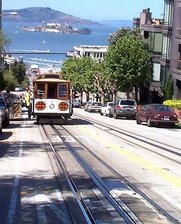



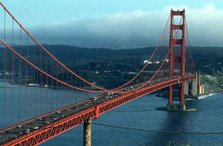




























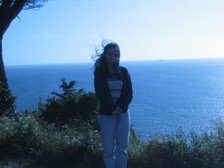








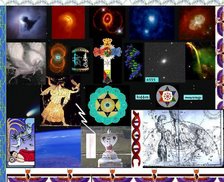
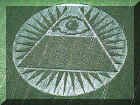
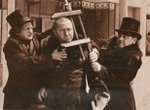
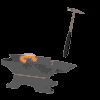


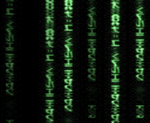
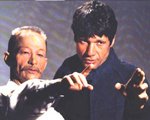











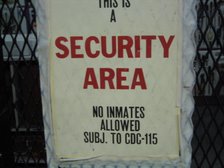






















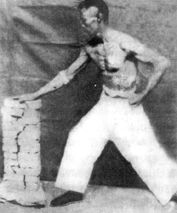
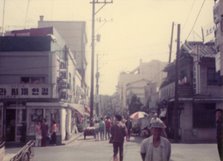




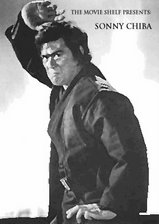








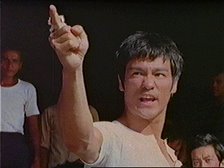



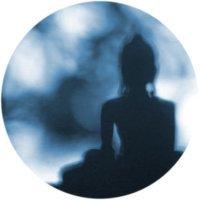




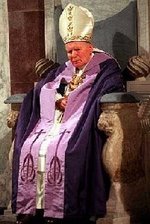








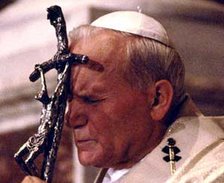





















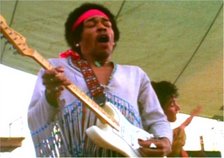
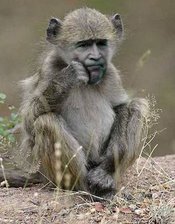


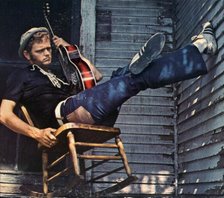







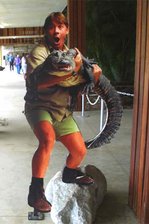

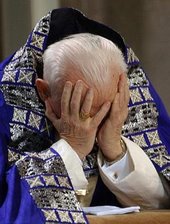

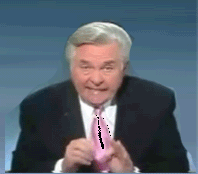





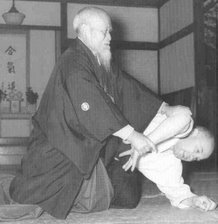
















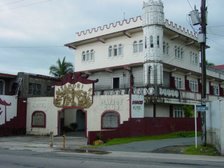
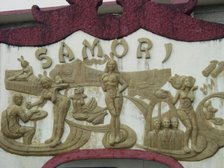
















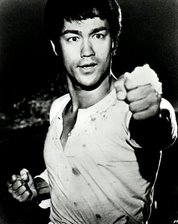
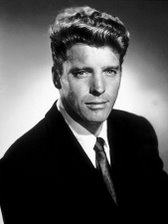
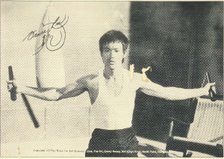


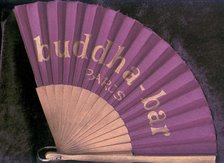
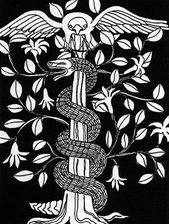


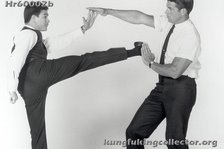
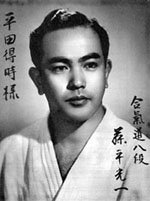



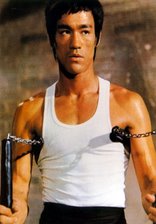
1 comment:
Awesome! This is totally accurate about someone who has an enlightening experience and attempts to share with others. Very fascinating. Thanks for the post!
Post a Comment